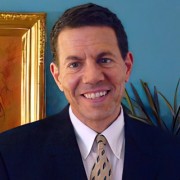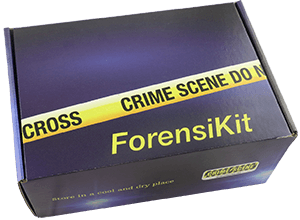
David McMahan interview
Tuesday, March 7, 2023 – 2:30 p.m.
David McMahan was Ambrose Garrett's neighbor and is treasurer of the Whitehall HOA.
Detectives Armstrong and Murphy interviewed him at the Yoknapatawpha County Sheriff's Department.
Participants:
- Detective T. Armstrong
- Detective S. Murphy
- David McMahan
Detective Armstrong: Thanks for coming in today.
David McMahan: This is about Ambrose, I presume?
Detective Armstrong: Yes. Before we get started, would you please state your full name and address for the record?
David McMahan: David James McMahan, 180 Cedar Hill Drive.
Detective Murphy: What do you do here in town, Mr. McMahan?
David McMahan: I'm a manager at First National Bank. I run the mortgage team.
Detective Murphy: How long have you worked there?
David McMahan: Ten years now. Wanda got tenure at Ole Miss, so here we are.
Detective Murphy: Wanda is your wife?
David McMahan: Yes. She's an economics professor.
Detective Armstrong: So you moved to the Whitehall neighborhood ten years ago?
David McMahan: No. We rented for a while, but we've been there about eight years now.
Detective Armstrong: How long did you know Ambrose Garrett?
David McMahan: Oh, the entire time. It's such a shock.
Detective Murphy: So you've known him eight years?
David McMahan: Yes, that's what I said, isn't it? The entire time.
Detective Murphy: Right. Was he on the association board at the time?
David McMahan: No, at first, we were just neighbors. Wanda and I lucked into one of the quality homes. The former owner was a widow who died, and it was put on the market. Ambrose lives— lived just up the road, and he and Delilah were really welcoming to us. It was work, too. Ambrose was in insurance, so we often had clients in common, you know.
Detective Armstrong: You were friends then?
David McMahan: Yes, you could say that. I suppose you could say we shared an outlook on life.
Detective Armstrong: Which was?
David McMahan: We both like to do things right. It can be a curse, you know, wanting everything to be perfect. It's hard when others don't measure up to the standards.
Detective Armstrong: Is that why you serve on the HOA board?
David McMahan: Yes, something like that. I like to contribute to the community however I can.
Detective Armstrong: When were you elected?
David McMahan: 2021. We'd been here for a while, and I felt there were some changes needed that I could help with.
Detective Murphy: What kind of changes?
David McMahan: Well, I don't want to seem disparaging. Anyone who volunteers for a homeowners association board is making a big commitment. But the people who were running the show at the time lacked discipline. I tried to instill some focus, but I didn't really succeed until Ambrose was elected. Sometimes it takes two, I suppose.
Detective Murphy: What do you mean by discipline?
David McMahan: Rules, money, you name it. It wasn't very efficiently handled, in my opinion.
Detective Murphy: What kind of money problems were there?
David McMahan: I wouldn't call them problems exactly. But as you may know— do you own a home, by the way?
Detective Armstrong: Let's stay on topic.
David McMahan: Rates are still reasonable, so if not, now's the time.
Detective Armstrong: Mr. McMahan, please.
David McMahan: Okay, forgive me. It's a curse. Always working. Anyway, as you may know, homeowners associations are responsible for pooling monthly dues and using the funds for maintenance. Then, when a bigger project comes along, we have to ask members for an extra contribution. When Wanda and I moved in, it was obvious the maintenance wasn't happening. The place was a mess, and once I saw the books, I saw they were a mess, too.
Detective Armstrong: What kind of bigger projects are we talking about?
David McMahan: Oh, getting the roads repaved, re-planting the common areas, painting the community center. Ideally, most of the monthly dues should be placed in an emergency fund, but the reserves were down to about $20,000 when I took office. It was shameful, in my opinion.
Detective Murphy: Was Julie Arbuckle president at that time?
David McMahan: Yes, and that's what's shocking. An accountant with her standing allowing that kind of deterioration? Well, I was surprised. I was always pushing her to propose special assessments and get back on track, pay to have a new five-year maintenance plan written and complete some of the projects, but she didn't want to. I think she was worried about upsetting people. She wanted to avoid conflict rather than get things done. She let the rabble down in the new development get the upper hand, ruining the tone of the neighborhood. Finally, I told Ambrose he had to help out, so he ran for president.
Detective Murphy: How did you feel about that?
David McMahan: I backed him, of course. I knew he would uphold the association rules.
Detective Murphy: What was he like to work with?
David McMahan: We made some tremendous progress. After the election last spring, we spent the entire rest of the year working on the finances. We renegotiated the landscaping contract and even got a special assessment passed in September to save the community center. We were planning to raise the dues when— well, it's just shocking. And, of course, Ambrose was gung-ho about enforcing the parking and noise restrictions, just as I thought he would be.
Detective Murphy: How did the special assessment go over?
David McMahan: Everyone voted for it unanimously, of course. It was obvious the community center needed an overhaul, even to the newer people.
Detective Murphy: And what about the other issues?
David McMahan: Well, Ambrose was certainly enthusiastic, even more than I imagined. He prosecuted every infraction to the point of really hounding people.
Detective Armstrong: And you supported that?
David McMahan: In principle, of course. This community has the potential to be the best in Oxford.
Detective Armstrong: But in practice?
David McMahan: Well, everyone has their own style. His way isn't mine, but I knew that going in.
Detective Armstrong: Meaning what?
David McMahan: Just as I said, Ambrose and I shared an outlook on life. I knew he could be hard-charging, driven, and I respect that.
Detective Murphy: Who would have cause to hate Mr. Garrett?
David McMahan: No one hated him. I wouldn't say that. None of the quality people had the slightest reason to be upset. He just wanted everyone to treat their homes with the same respect, and some people did that less than others. They might have resented him for pushing them to improve themselves.
Detective Armstrong: Who specifically?
David McMahan: I don't want to seem like I'm castigating people, but you know, Shannon Bower is a real handful. Some people just don't have common decency. You know how it is. It's too bad those lower-end units were ever built, but that was before my time.
Detective Armstrong: Anyone else?
David McMahan: It's a different type of situation, but Warren Edwards called the cops on Ambrose recently for running some kind of machinery late at night. I don't know the details, but I do know there were bad feelings on both sides after that incident.
Detective Armstrong: What about Julie Arbuckle?
David McMahan: Please. Julie's a pushover. She doesn't have the focus to hate people. Or maybe it's her female nature, wanting to nurture people or something ridiculous like that. I've often wondered if that was her problem when she was on the board. It makes one question the idea of women holding political office, no offense intended.
Detective Murphy: I'm sure. How did Mr. Garrett get along with his wife?
David McMahan: I hardly know. He and I were friends, but we didn't indulge in that kind of gossip. He and Delilah seemed to have a very stable relationship. She was very supportive.
Detective Murphy: Did they have children?
David McMahan: No.
Detective Murphy: Do you?
David McMahan: Yes, Annabelle. She's at Choate up in Massachusetts. You know, boarding school.
Detective Armstrong: We got it.
Detective Murphy: Mr. McMahan, what happened the night Mr. Garrett died?
David McMahan: Nothing. I mean, nothing out of the ordinary. That's what's so shocking. We had an association meeting just like any other.
Detective Murphy: Anything unusual on the agenda?
David McMahan: Not really. Ambrose was touting an idea he had for building a website to publicly shame people into paying their fines for infractions. Not a bad idea.
Detective Murphy: What was the reaction to it?
David McMahan: Again, nothing unusual. Most people thought it would be fine, and others hated it.
Detective Murphy: What else happened?
David McMahan: What did I tell you? Nothing unusual.
Detective Murphy: What time was the meeting over?
David McMahan: Around 7:00 p.m., I believe. I didn't check my watch.
Detective Murphy: Did you leave right away?
David McMahan: No. Mary Wallace and I spoke for a few minutes with Ambrose about action items. It's essential to follow through. That's the only way to get things done.
Detective Armstrong: How did Mr. Garrett seem? Anything unusual?
David McMahan: Not really. Of course, he'd had a little to drink. He always did. That's something I always admired in him. He could be quite bold. I'm sure everyone in the room would have liked a stiff drink to help get through the meeting, but Ambrose went ahead and did it. He didn't care what people thought.
Detective Murphy: Did he leave the meeting with you?
David McMahan: No. He was going to close up the community center, shut down the power, and so on—that's another cost savings. We don't leave anything running except the refrigerator and a few security lights—so Mary and I left.
Detective Murphy: Did you walk or drive?
David McMahan: Mary walked, as she lives nearby. I drove.
Detective Murphy: Where did you go when you left?
David McMahan: Went home, of course. Wanda had dinner waiting, and we watched some TV.
Detective Murphy: Did you see anyone other than your wife?
David McMahan: No.
Detective Murphy: Make any calls?
David McMahan: No.
Detective Murphy: What about on the way back to your house? Did you see anyone out walking?
David McMahan: I didn't. Look, I understand why you have to ask these questions, but it seems insipid to me. As far as I've read, you don't even know whether Ambrose died of natural causes or not. And if you think I killed him, well, you'd be dead wrong.
Detective Armstrong: Who might have wanted to hurt Mr. Garrett?
David McMahan: I can't think of anyone. As I've said, people had their petty problems, but it's inconceivable that anyone would take it that far.
Detective Armstrong: Thanks for your time, Mr. McMahan.
David McMahan: You're welcome.
Detective Murphy: We'll be in touch if we have any more questions.
David McMahan: Of course.
Interview ended – 3:03 p.m.

